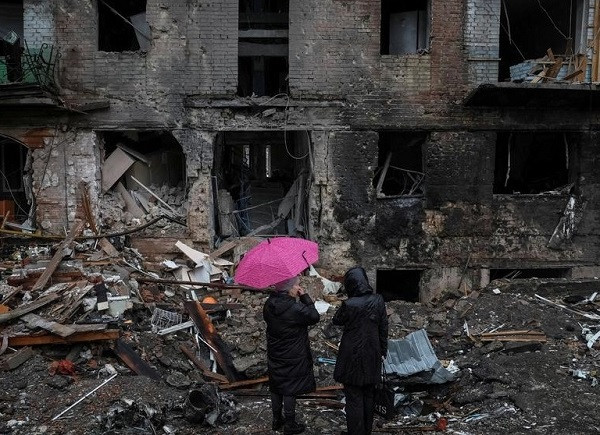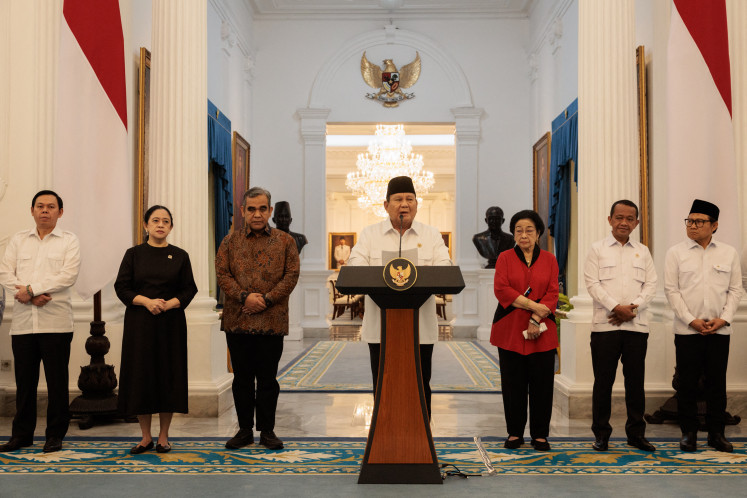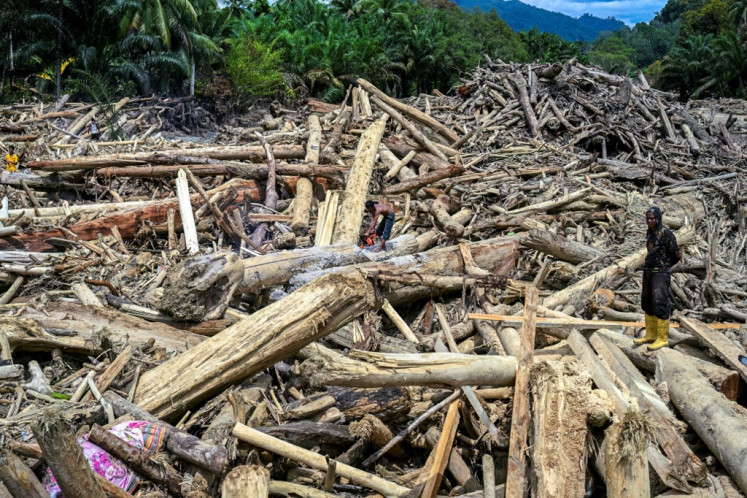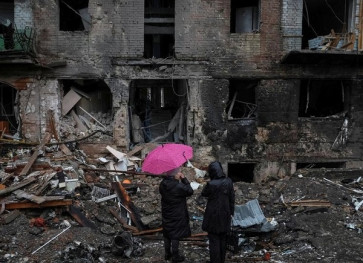Popular Reads
Top Results
Can't find what you're looking for?
View all search resultsPopular Reads
Top Results
Can't find what you're looking for?
View all search resultsUkraine, right-wing nationalism and the crisis of democracy (Part 2)
The crux, in other words, is that the liberal third wave of democracy has step-by-step nourished an authoritarian reaction due to its connection to global neoliberalism, continued elitism and corruption.
Change text size
Gift Premium Articles
to Anyone
I
n a similar way, the West bet on compromises with the military in Myanmar, which could then crush the movement of democracy – to name a few examples, the United States, Donald Trump took over and his successors lived on, Brexit and neo-nationalists in Europe. All the while, China's party-led state-capitalism has been consolidated, Hong Kong's pro-democrats have been imprisoned and Taiwan's democracy remains threatened.
From the radical social democratic theorist, Wolfgang Streeck (Critical Encounters, Verso, 2020), it can be said that because global neoliberalism has undermined the possibilities of promoting welfare with the help of democratic decisions, more national autonomy is needed. Unionists and other activists add the importance of an international organization but usually agree that it is fundamental to promote national room for action by regulating the transnational companies and finance capital. The linchpin in the north as well as the south lacks powerful pro-democracy movements that can press for such demands and get their governments to implement them.
Meanwhile, the established democracy support takes on a routinized life of its own while pro-democracy forces are typically left behind and poorly coordinated. Exceptions such as in Chile, Colombia, Brazil, and Indian Kerala are few and short of support. The attempts to spread freedom and democracy by military means as in Afghanistan, Iraq and Libya have failed.
By now, many people and leaders are critical of policy sanctions for Ukraine, which hit them harder than Russia. The global inflation is rooted in a shortage of goods due to nationalism during the pandemic and conflicts such as the one in Ukraine, but until these problems are resolved, austere policies return to the fore, electricity prices increase and fossil fuels gain prominence again, creating debt crises, hitting the weak the most and deepening the climate emergency.
Consequently, we should do everything to combine the defense against Russia's aggression with countering its root causes. The liberal democratic wave failed to link a market-driven globalization with sustainable development and welfare. Instead, Sweden, for one, has cut aid to pro-democracy forces that must be strengthened to solve the problems of plunder and unequal development and has made special concessions to the Turkish autocracy to get into NATO.
In addition, Asian allies against Russia and China were invited to the NATO meeting in Madrid, indicating that a new worldwide cold war is emerging. We are experiencing rearmament, nuclear threats, proxy wars and support for authoritarian allies at the expense of human rights, democracy, welfare and the climate, in a way that is very similar to the undermining of the anti-fascist and anticolonial wave of democracy after World War II. Is it really a new and more unpredictable cold war we want?
The crux, in other words, is that the liberal third wave of democracy has step-by-step nourished an authoritarian reaction due to its connection to global neoliberalism, continued elitism and corruption. Now the principles of liberal democracy can therefore only be defended and deepened as part of a social democratically oriented countermovement for sustainable development, in the spirit of Keynes and with elements of productive welfare reforms and democratic partnership.



















